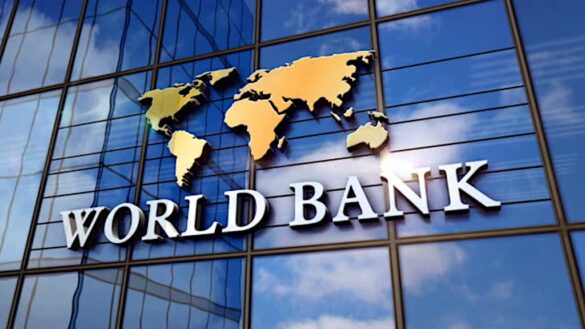The World Bank has revised a $350 million loan to Nigeria, aimed at ensuring the completion of seven key power plants in educational institutions, thereby strengthening the country’s energy infrastructure.
The restructuring of this loan, detailed in the Nigeria Electrification Project (NEP) Restructuring Paper, involves extending the project’s closing date to December 31, 2024. This extension provides the necessary time to complete the power plants crucial to the project’s success.
Initially approved on June 27, 2018, the NEP aims to increase access to electricity for households, public institutions, and underserved micro, small, and medium enterprises (MSMEs).
While significant progress has been made, delays have arisen due to challenges such as geotechnical issues, community disturbances, and disruptions related to COVID-19.
Project Restructuring and Timeline
According to the Restructuring Paper, the project’s closing date has been extended to ensure the delivery of all seven power plants as per the original plan, including unforeseen but essential additional tasks.
The revised completion date for the plants is expected by the end of the third quarter of 2024, with sub-projects in Maiduguri and Calabar anticipated to finish by the end of September 2024.
The last quarter will focus on site handover and the commencement of a sustainability plan, with EPC contractors providing a performance guarantee for the operational and maintenance period.
NEP: Goals and Achievements
The Nigeria Electrification Project (NEP) is designed to include several key components, such as the development of private sector mini-grids, expansion of standalone solar systems for impoverished households, and the provision of sustainable power to public universities and associated teaching hospitals.
As of June 2024, the project had connected nearly 59,000 households and MSMEs through mini-grid grants and over 1.09 million households and MSMEs via standalone solar systems. However, Component 3, which focuses on the Energizing Education Program Phase II (EEP II), has experienced delays, with completion levels varying from 35% to 80% across different sites.
Financial and Project Status
The total commitment for the Nigeria Electrification Project (NEP) is $350 million. As of the latest update, $265.32 million has been disbursed, leaving an undisbursed balance of $84.68 million.
Status of Power Plant Projects
1. University of Abuja: The project is 65% complete, facing challenges such as rocky ground and deteriorated access roads. Additional work involves drilling footings, constructing retaining walls, and building a 1.4 km access road.
2. Michael Okpara University of Agriculture, Umudike: This project is 85% complete, with issues related to non-compliant transmission line materials. Additional work includes replacing 12.6 km of the conductor line.
3. University of Calabar & Teaching Hospital: Also 65% complete, challenges include a collapsed drainage network and unsuitable soil. The additional scope includes constructing new drainage channels and reclaiming flood-affected areas.
4. University of Maiduguri & Teaching Hospital: Standing at 79% completion, the project faced issues like a refuse dump site and a military-grade trench. Additional tasks include backfilling and constructing a double circuit transmission line.
5. Federal University of Agriculture, Abeokuta: At 90% completion, challenges include basement igneous rock removal and drainage issues. Additional work requires extending the drainage channel and underground cabling.
6. Federal University, Gashua: While the downstream distribution network is 100% complete, the rapid expansion of infrastructure posed new challenges. Additional work involves constructing 8.7 km of a distribution network.
7. Nigeria Defence Academy, Kaduna: With only 15% completion, the project faced vandalism and the need for new infrastructure. The additional scope includes replacing a vandalized transmission line and building a 16 km transmission line.
Through this restructuring, the World Bank aims to ensure the successful completion of these projects, which are critical for improving Nigeria’s energy infrastructure and supporting the nation’s educational institutions.











